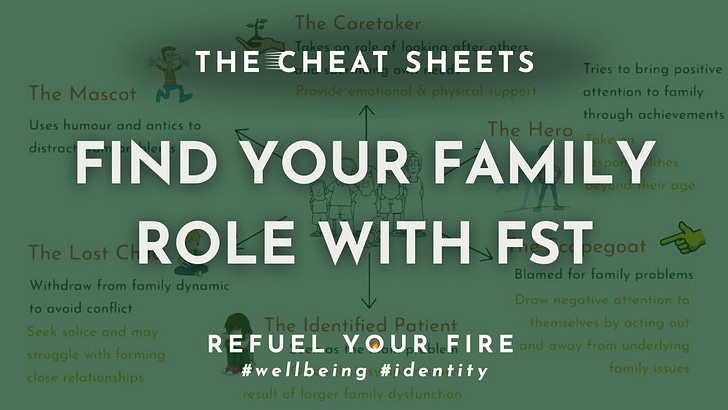Delving into the realm of psychotherapy has been a fascinating journey for me. While many view psychology as a useful tool for navigating everyday life, the nuances of psychotherapeutic theories offer even deeper insights into understanding human behaviour and relationships.
Recently, I’ve been exploring more about Family Systems Theory (FST) by Murray Bowen - a therapeutic approach providing invaluable insights into the complex dynamics of family relationships. FST offers a fresh perspective on why families sometimes resemble tangled webs of emotions and roles.
At its core, Family Systems Theory posits that families operate as emotional units, with each member playing a distinct role in maintaining the family’s equilibrium. These roles, ranging from functional to dysfunctional, are integral to preserving the family's emotional balance.
There are six primary roles within family systems:
The Identified Patient often shoulders the blame for family issues, serving as a distraction from underlying familial tensions
The Caretaker prioritises others' needs at the expense of their own well-being
The Hero strives for success to garner positive recognition
The Scapegoat draws negative attention through rebellious behaviour
The Lost Child retreats to avoid conflict
The Mascot uses humour to diffuse family tensions.
Bowen's Family Systems Theory also introduces pivotal concepts such as Differentiation of Self, Triangles, Nuclear Family Emotional System, the Family Projection Process and more.
To learn more about Family Systems Theory, check out my latest animated whiteboard video on Family Systems Theory:
You can find plenty of resources including events, books, articles, training pathways and more via the Family Systems Institute: https://www.thefsi.com.au/
Get Fit and Refuel your fire!
To find out more about the work I do visit my website
Online store
To access fitness, career & wellbeing resources, visit my store, The Cheat Sheets




